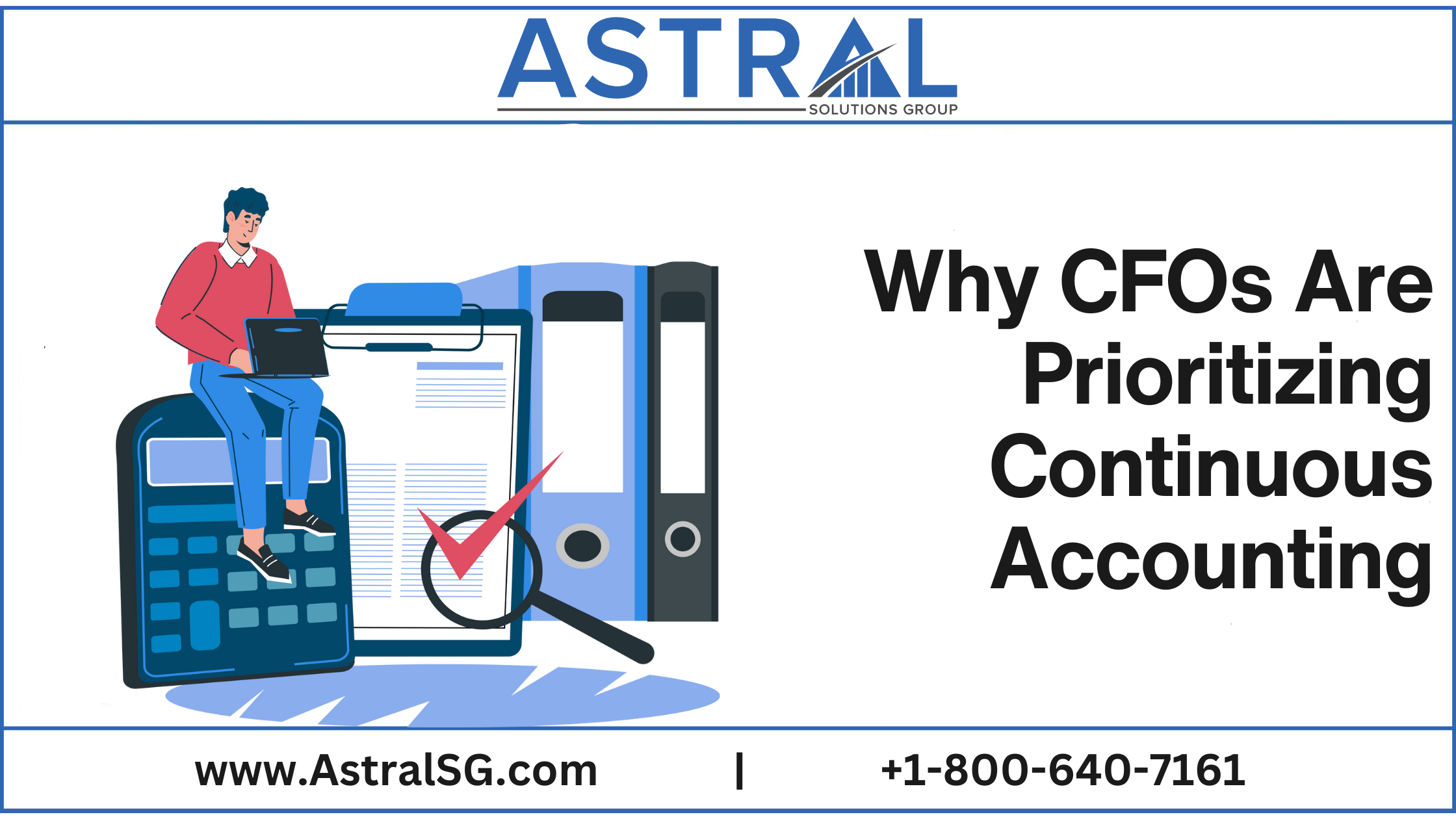
The fast-paced, data-driven business world of today makes traditional accounting techniques obsolete. Agile financial operations and real-time information are replacing monthly or quarterly closes. Continuous accounting is a cutting-edge strategy that progressive CFOs are adopting quickly.
Let’s examine continuous accounting’s definition, significance, and the reasons CFOs are giving it great attention.
What Is Continuous Accounting?
Continuous accounting is a methodology that incorporates financial procedures into regular business operations using automation, real-time data, and ongoing monitoring. Finance teams work throughout the day rather than waiting for month-end or quarter-end deadlines, allowing for a more current and accurate view of the company’s financial situation.
Essentially, the finance department undergoes a real-time transformation thanks to continuous accounting.
Why Are CFOs Prioritizing Continuous Accounting?
1. Faster, Real-Time Insights:
CFOs are under increasing pressure to provide real-time financial data to support quick decision-making. With continuous accounting, data is captured and analyzed continuously, eliminating lag times and enabling proactive rather than reactive strategies.
Benefit: Enhanced agility in responding to market changes, budget reallocation, or risk management.
2. Improved Accuracy and Decreased Errors:
Human mistakes hurried reconciliations, and bottlenecks are common outcomes of manual, periodic accounting. Continuous accounting uses automation to lower errors and improve data accuracy while distributing the job evenly.
Benefit: Increased assurance regarding financial reports and preparedness for audits.
3. Better Risk Management and Compliance:
CFOs are aware that compliance problems may be expensive. Identifying irregularities, fraud, or regulatory concerns as they arise is simpler since continuous accounting ensures that transactions are examined and reconciled in real-time.
Benefits include improved internal controls and decreased risk exposure.
4. Improved Allocation of Resources:
Intense overtime is frequently needed for traditional month-end shuts, which can result in burnout and wasteful resource utilization. Finance teams can distribute their burden more equitably thanks to continuous accounting, which frees time for strategic activities like scenario modeling, forecasting, and business collaboration.
Benefit: Increased worker satisfaction and team productivity.
5. Assistance with Digital Transformation:
CFOs are taking on a more significant strategic role in their companies’ digital transformation initiatives. This change perfectly suits continuous accounting, which uses cloud platforms, AI, and RPA (Robotic Process Automation) to optimize financial operations.
Benefit: Finance operations that are prepared for the future and encourage scalability and innovation.
Challenges in Adopting Continuous Accounting
Despite the apparent advantages, there are challenges in putting continuous accounting into practice. Typical difficulties consist of:
- Legacy systems cannot support real-time data integration.
- Employees used to established procedures are resistant to change.
- A one-time expenditure on cloud and automation technology.
However, these obstacles may be removed with the correct approach and guidance, and the benefits are substantial.
How CFOs Can Lead the Shift
- Examine current procedures to find bottlenecks and inefficiencies.
- Make the appropriate technological investments, such as in analytics platforms, automation tools, and ERP systems.
- Train the finance team to use agile methods and data literacy.
- Encourage a culture of constant improvement where creativity is valued, and change is accepted.
Conclusion
Continuous accounting is a revolutionary change in the way that finance functions, not just a trendy term. By adopting it, CFOs are setting up their companies for improved compliance, quicker insights, and a competitive advantage. Continuous accounting isn’t just a fad; it’s the financial industry’s future as the need for real-time data increases.




